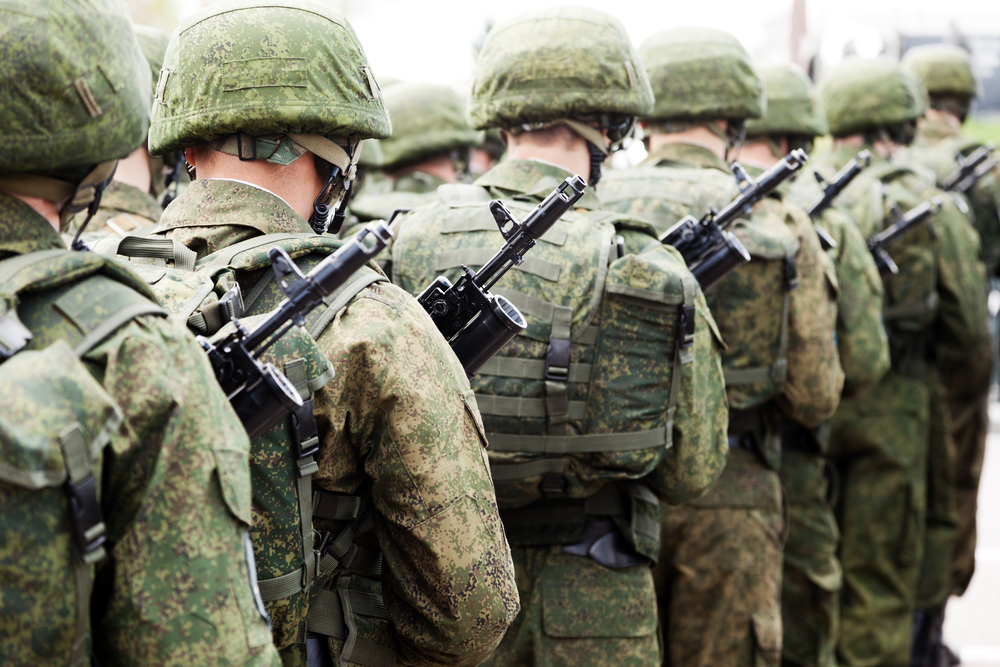On Friday, July 7th, Colin Kahl, the Undersecretary of Defense for Policy, announced that the U.S. is sending additional military aid to Ukraine, including cluster munitions or cluster bombs. Cluster munitions are, effectively, bombs that contain many smaller bombs – they are designed to open mid-air before reaching their target, releasing smaller bombs, called submunitions or “bomblettes,” into a large area. Military decision makers view them as more effective than traditional artillery but cheaper than more advanced weaponry like guided missiles. Nonetheless, the Biden administration has faced pushback for this decision. U.S. allies have criticized the decision and some Democrats in Congress have expressed concerns.
The problem is that cluster munitions pose significant risks to civilians. All munitions can fail – there are still unexploded bombs from the Second World War found in Europe. Since cluster munitions may contain hundreds of submunitions, failure of at least one submunition is significantly more likely than the failure of a conventional explosive. Further, because submunitions are numerous and small (some the size of a tennis ball), it is difficult to determine when one has failed to detonate and to track it down afterwards.
For instance, the United States made use of cluster munitions to heavily bomb Laos during the Vietnam war, in an effort to disrupt North Vietnamese supply lines. As much as 30% of the munitions may have failed to detonate as intended. The Mines Advisory Group reports that it disarmed its 300,000th bomb in Laos since beginning operation there in 1994. They also estimate that 50,000 people, half of whom were children, were killed by unexploded ordnance in Laos, with 20,000 of those deaths occurring after the war in Vietnam concluded. Civilians may unintentionally activate the explosives after unknowingly stepping on them, or when attempting to move or scrap the munitions.
As a result, many nations have sought to eliminate the use of cluster munitions. The UN Convention on Cluster Munitions has 108 signatories. These nations agreed to never produce, store, transfer or use cluster munitions, and to destroy their stockpiles of these weapons. Notably, the United States, Ukraine, and Russia did not sign on to the agreement.
Is it morally justifiable for the U.S. to send cluster munitions to Ukraine? I have previously written on just war theory and the war in Ukraine. In that discussion, I enumerated three criteria that theorists assess to determine the permissibility of wartime acts. To be morally justified, first, acts must not intentionally target civilians. However, acts which knowingly result in the deaths of civilians may be permissible. This is known as the doctrine of double effect. But justification requires two further standards. The harms of the act must be proportionate to the good that it aims to secure, meaning the outcomes it aims to achieve must “fit” the harms produced; the greater the harm, the greater the gain must be. Additionally, the harms ought to be necessary to achieve the goal – if there is some other, less harmful measure that can bring about the same results, then the more harmful act is not justified. With this in mind, let us consider some of the arguments public officials have offered to defend this decision.
Secretary of State Anthony Blinken argued, among other points, that providing cluster munitions to Ukraine would not radically change the risk to civilians – after all, the Russian military has already used cluster munitions. In fact, independent investigators believe that the Russian military deliberately targeted civilian locations with cluster munitions. Indeed, then White House Press Secretary, Jen Psaki commented on these reports stating that “If that were true, it would potentially be a war crime.”
Ultimately, this point fails to demonstrate anything from a moral point of view. Past wrong acts do not justify further, albeit lesser, wrong-doing in response. Even if there is already a risk posed to civilians from prior Russian use of cluster munitions, further use increases that risk. Thus, this point raised by Secretary Blinken is either irrelevant or incorrect, and perhaps both.
Several members of the Biden administration have emphasized the low dud rate of the cluster munitions the U.S. is sending to Ukraine. Purportedly 2.5% or fewer of these munitions fail to detonate as intended. They have contrasted this to the Russian military utilizing munitions with a dud rate they claim is as high as 30 to 40%. However, the previous reports from the Pentagon state that some submunitions in U.S. cluster bombs have a failure rate of 14% or greater.
Even if we take for granted the lower of the reported dud rates, it is unclear what this is supposed to demonstrate, morally speaking. Again, this dovetails with the previous point about the Russian military’s use of cluster weapons. Some of these munitions will undoubtedly fail. Thus, U.S. provided cluster munitions may still kill innocents. At best, this line of thought shows that the use of U.S. provided cluster munitions is more likely to be proportionate than the Russian use, given the lesser risk to civilians. But it is possible that both would be unjustified.
A more plausible defense of sending cluster munitions to Ukraine stems from the notion that they are necessary. President Biden has argued that the munitions are currently needed for a “transitionary period” so Ukraine’s military can keep up pressure while conventional munitions are restocked. Secretary Blinken also claimed that Ukraine would be defenseless without these additional munitions.
I lack the expertise to comment directly on the military necessity of using these weapons. So, in this sense, my analysis here is limited. Perhaps Ukrainian armed forces could hold the line until restocked with conventional munitions. Alternatively, perhaps this would give the Russian forces more time to dig in their defenses. This could make any Ukranian counter-offensive more difficult and deadly. More troublingly, it could help the Russian military regain previously lost ground in Ukraine.
Regardless, this line of argument seems suspect in that it appears self-undermining. Even proponents of sending cluster munitions to Ukraine want their use limited. Specifically, they should be used only until conventional weapon stockpiles can be replenished. This, ultimately, suggests skepticism that cluster munitions are morally justified. If they were, then it would indeed be quite odd that Ukrainian forces should only temporarily utilize them.
Of course, one might argue that even questioning whether the U.S. ought to send these munitions misses the point. The people of Ukraine are fighting a war against an unjust aggressor and defending their sovereignty. In the face of this existential threat to a democracy posed by an authoritarian regime, perhaps the least we can do is arm them with whatever munitions they request, within reason of course.
In the Republic, when discussing the nature of justice with Cephalus, Socrates asks his interlocutor to consider the following scenario: Suppose you borrowed a sword from a friend. Later your friend, now in a crazed state, asks you to return the sword. Both agree that even if justice requires paying one’s debts, surely justice would require withholding the sword if innocent lives are at risk. The consequences of what happens after you give your friend the sword, or in this case, the bombs, affect the morality of your act as well. The supplier does not have moral carte blanche.
Ultimately, whether supplying cluster munitions to Ukraine is justified turns on what these munitions will accomplish – are they necessary to achieve some substantive good that is worth the risk to civilian lives? If there is some less risky alternative with a reasonable chance of achieving the same goals, then it appears that alternatively is morally preferable. Further, even if cluster munitions are required to achieve some current objective, there must be an honest examination of whether those gains are worth the loss of civilian lives. Thus far, the arguments offered by the Biden administration speak minimally to these points.





